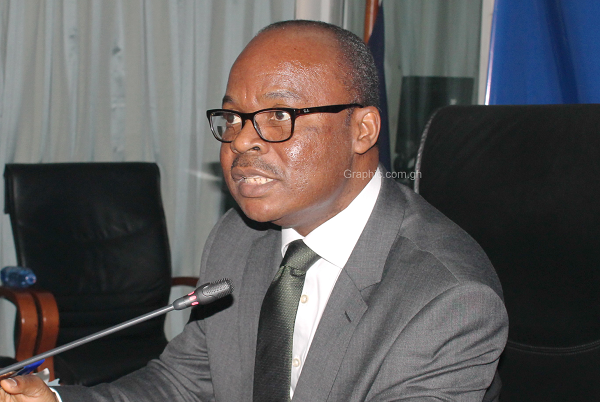The Monetary Policy Committee (MPC) of the central bank has voted for the sixth time in under 18 months to reduce its policy rate, from 18 to 17 percent, after April’s inflation dropped to single-digit for the first time since 2013.
The one percent reduction yesterday brings to 8.5 percent the total reduction since January 2017, when the policy rate stood at 25.5 percent.
Speaking at the MPC press briefing in Accra, Dr. Ernest Addision – Governor of the central bank, attributed the committee’s decision to lower the policy rate to favourable inflation conditions which have brought relative price stability.
Inflation recorded for April, 2018, declined to 9.6 percent, the first time in more than five years that the consumer price index broke into the single digit band. The figure also compares favourably to the bank’s own target of achieving 8±2 percent inflation by 2019.
The improved inflation performance, and the lower push from cost of items or services that could force inflation to rise, gave the bank another reason to reduce the policy rate to 17 percent – which is the lowest since November, 2018.
“Both headline and core inflation have broadly trended downward, indicating easing underlying inflation pressures. Additionally, weighted inflation expectations across the sectors have continued to decline. Headline inflation trended within the medium-term target of 8±2 percent and the forecast points to sustained disinflation over the horizon, barring unanticipated shocks.
“Under the circumstances, the Committee noted that the risks to the inflation outlook are subdued in the forecast horizon. While global and domestic developments do not yet pose a threat to inflation in the near-term, recent changes in global financing conditions and its impact on emerging market asset classes require some vigilance.
“Consequently, the Committee decided to reduce the monetary policy rate by 100 basis points to 17 percent. The Committee, however, stands ready to take the appropriate policy measures to address any potential threats to the disinflation path,” the Governor announced.
The bank’s decision to reduce its police rate should come as boost to the newly-created Ghana Reference Rate, which has become the benchmark by which banks peg their interest on credit to their customers.
Given that the bank’s own survey of economic activity suggests a slower pace of growth in the first quarter of 2018, the central bank is hopeful the policy rate reduction can trigger some ease in cost of credit and force growth to rebound over the medium-term.
According to the Governor, rebounding of growth is expected to be supported by the favourable external environment and policy initiatives introduced by government.
Nevertheless, he stated that the business environment remains favourable due to the cedi’s relative stability– which has uncharacteristically appreciated, by less than one percent, against the dollar since January 1 – reduction in interest rates and the continued disinflation process.
Dr. Addison stated that despite private sector credit growth remaining below expectation, the bank kas picked up signals of recovery evidenced by increased new loan advances and easing credit conditions.
Fiscal operations, the Governor said, indicate continued consolidation in the first quarter – although revenue concerns remain.
“There is a need to strengthen revenue mobilisation efforts to help finance government priority programmes and increase the pace of arrears clearance, to mitigate the spillover effects on the financial sector,” Dr. Addison said.





